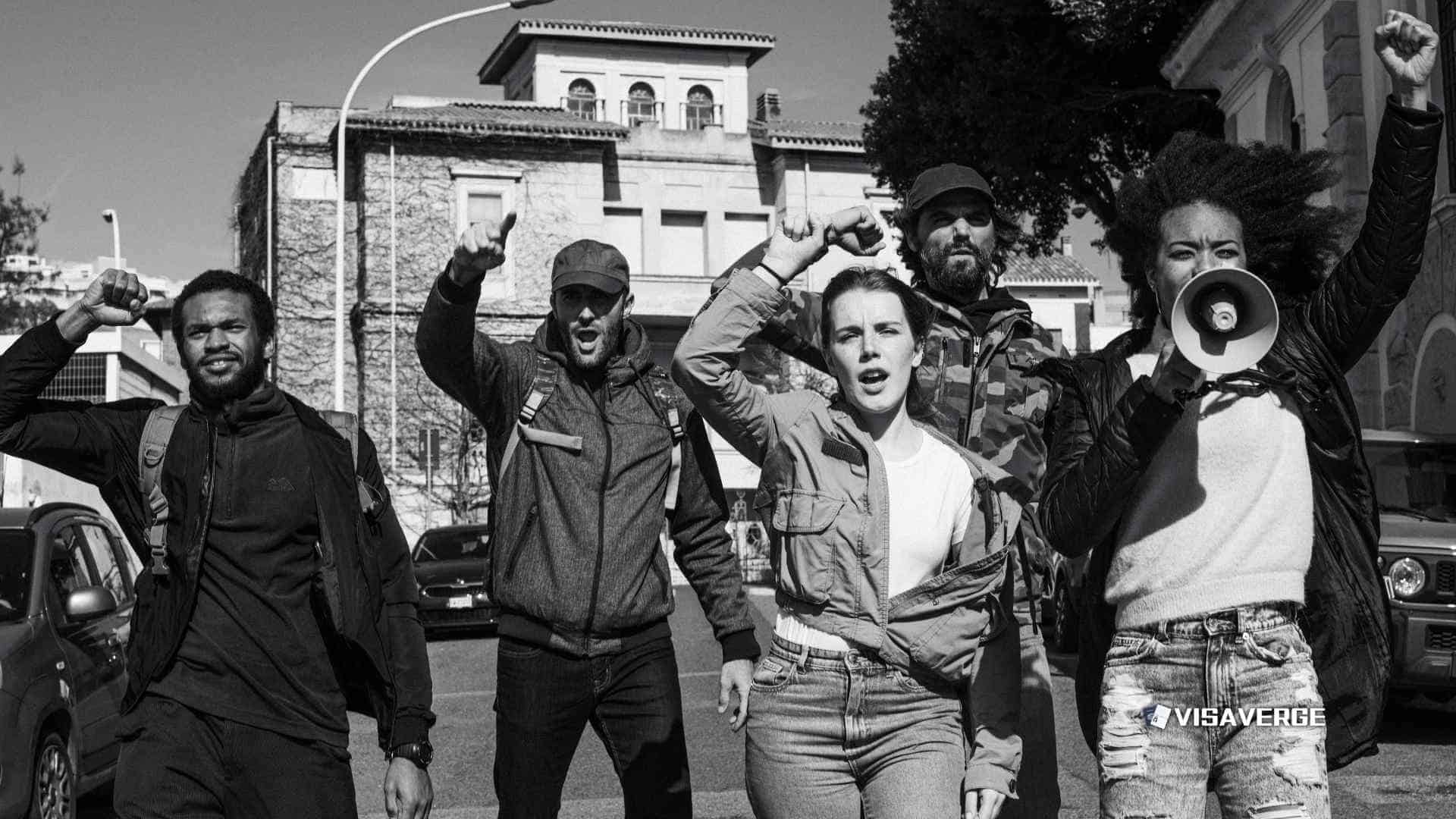(PALM BAY) A U.S. teenager from Palm Bay has been held in Israeli custody for more than six months without formal charges, drawing a growing outcry from rights groups and elected officials who say the case shows how limited American consular help can be when Palestinian-American citizens are detained. The teen, 16-year-old Mohammed Zaher Ibrahim, was arrested on February 16, 2025, at his family’s home in the occupied West Bank. He turned 16 while in custody and is now being held at Ofer prison, a military facility long criticized by advocates for harsh conditions. A court hearing is set for October 29, 2025, but until then, no formal charges have been filed.
Ibrahim’s parents in Palm Bay say they haven’t been able to speak to their son directly since the arrest, except to see him on video during court sessions. U.S. Embassy officials in Israel have visited him and say they’re following standard procedures. According to the family’s account shared with advocates, Ibrahim has lost about 25 pounds and developed scabies while in detention. He was first taken to Moscovia detention center, then moved to Megiddo prison, and later transferred to Ofer prison.

Advocacy groups say the case is not an outlier. Defence for Children International and other organizations report a sharp rise in the detention of Palestinian children by Israeli forces since October 2024, often without charge or trial. Israeli authorities have not published updated figures on child detainees for the second quarter of 2025, and officials have not publicly commented on Ibrahim’s case as of August 26, 2025.
Miranda Cleland of Defence for Children International said Ibrahim’s detention shows the fragility of U.S. citizenship protections in such cases.
“Mohammad Ibrahim’s case has proven that not even a US passport can protect a Palestinian child in Israeli prisons,” she said, calling for the urgent release of all child detainees.
Ibrahim’s arrest came when he was 15, after Israeli authorities accused him of throwing rocks at military vehicles. His lawyer has indicated that stronger U.S. diplomatic pressure could help secure his release, possibly with a condition that he not return to the West Bank for at least a year. For now, the family remains cut off: even routine calls have not been allowed, and letters have not reached him, according to advocates tracking the case.
Growing Pressure and Local Advocacy
The pressure has grown in Florida. After 45 days without contact, Ibrahim’s father reached out to Florida Congressman Mike Haridopolos, whose office referred the case to the State Department. U.S. Embassy officials say they have been in contact with Israeli authorities and continue prison visits. The family, however, reports little change in conditions.
More than 100 U.S. organizations, including the American-Arab Anti-Discrimination Committee (ADC), the Center for Constitutional Rights, and Pax Christi USA, wrote to Secretary of State Marco Rubio urging direct intervention. In August, the ADC organized a Times Square billboard campaign that labeled the teenager “unjustly imprisoned by Israel,” raising national attention to the Palm Bay case.
Advocates argue that the response from Washington has been too routine given that a U.S. minor is at the center of the case. They say “standard procedures” have not helped secure release or reliable access to medical care, and they point to a broader pattern in which Palestinian-American families face long delays and limited support in the West Bank. VisaVerge.com reports that community leaders see Ibrahim’s treatment as an example of how dual nationals can face long detentions with limited U.S. leverage.
The State Department’s position, according to Embassy officials who visited Ibrahim, is that they are monitoring his health and confinement and seeking updates from Israeli counterparts. But the family and supporters say monitoring is not enough. They want direct diplomatic pressure tied to timely release or transfer to humane conditions, as well as assurances of regular family contact.
Legal Questions and Condition Concerns
Human rights organizations say moving Palestinian detainees from occupied territory to prisons inside Israel breaches the Fourth Geneva Convention, which bars transfer of detainees out of occupied territory by the occupying power. Advocates argue that keeping a Palestinian-American child in this system—without charge and with minimal family contact—violates international norms for the treatment of minors.
Key details in the case so far are summarized below:
| Item | Detail |
|---|---|
| Date of arrest | February 16, 2025 |
| Age at arrest | 15 (now 16) |
| Facilities held | Moscovia → Megiddo → Ofer prison |
| Formal charges | None filed after more than six months |
| Reported health issues | ~25-pound weight loss; scabies reported |
| Family contact | Severely restricted; only video during court |
| Next hearing | October 29, 2025 |
Advocates add that the physical and mental impact of such detention on a teenager can be severe and long-lasting. For Ibrahim’s family, the trauma grew worse in July 2025 when his cousin, Sayfollah Musallet, was killed by Israeli settlers, according to relatives and community advocates. With their son still behind bars, the Palm Bay family is grieving a death while also struggling with a detention case that has no clear end date.
Rights groups say they have documented numerous cases since October 2024 in which Israeli forces detained Palestinian minors, sometimes holding them in isolation or cutting off contact with family for long stretches. They argue that Israeli military courts lack the safeguards needed for minors, especially those with foreign citizenship. While Israeli officials have not commented publicly on Ibrahim’s case, the lack of updated child detention data for the second quarter of 2025 has added to concern from advocates who say conditions are getting worse.
A central frustration for the family and their allies is the gap between what an American passport promises in theory and what consular officials can do in practice. U.S. Embassy visits can check on welfare and relay messages, but they rarely bring a quick release. In Ibrahim’s case, even improvements in daily care have been hard to secure, according to advocates working with the family.
Practical Steps for Families Facing Detention Abroad
Families who have a U.S. citizen relative detained overseas often ask where to turn. In cases like this one, advocates point to a few basic steps, while noting that results can vary:
- Contact the U.S. Embassy or Consulate
- Provide the person’s full name, date of birth, and detention details.
- Ask for regular welfare visits and written updates on health, contact, and court proceedings.
- For general guidance, see the U.S. Department of State page: https://travel.state.gov/content/travel/en/international-travel/emergencies/arrest-detention.html
- Keep detailed records
- Note every call, email, and visit.
- Keep copies of any court or medical documents that reach the family.
- Seek local legal representation
- Local counsel can ask the court for access to medical care, family calls, or changes in conditions.
- Work with established rights groups
- Organizations with experience in child detention and international law can coordinate advocacy and connect with relevant offices.
- Communicate with congressional offices
- Staff can request briefings from the State Department and ask for higher-level engagement.
Advocates close to Ibrahim’s case say the next major date is the October 29, 2025 court hearing. His lawyer believes sustained diplomatic pressure before that date could affect the outcome. Possible outcomes they say could be sought include:
- Improved conditions in detention
- Interim release to house arrest
- Approval of monitored family contact
- Formal charges that would allow for contesting evidence in court
No Israeli agency has commented publicly on those possibilities.
Community Impact and Next Steps
In Palm Bay, friends and neighbors describe a family caught between hope and fear. With each passing week, the isolation grows harder to bear. The parents tell advocates they still have not heard their son’s voice since the day he was taken. Every update comes secondhand, often days or weeks after a hearing or prison visit. They worry about his weight loss, skin infection, and sleep.
The family’s supporters say a teenage boy from Florida should not face months in a military prison without charge, hundreds of miles from home, and with almost no contact with his parents.
For Palestinian-American families more broadly, the case has become a warning: even with U.S. citizenship, they can end up trapped in a military system with slow timelines, sparse communication, and strict limits on access. Community leaders say these risks have grown since October 2024 as military operations and arrests in the West Bank have increased.
The ADC’s Times Square campaign was designed to break that cycle by putting Mohammed Zaher Ibrahim’s name on a high-profile stage. The group hopes public pressure will force more urgent action from U.S. officials and prompt Israel to either file charges that can be contested in court or release the teen to his family.
For now, Ibrahim remains at Ofer prison. His supporters repeat the same demands:
- Humane conditions
- Regular family contact
- Timely medical care
- Either a formal charge or a path to go home
The parents in Palm Bay wait for the hearing date, gather documents, and answer calls from rights groups and reporters. They say they are grateful for the attention, but they want action that changes their son’s daily reality.
As the calendar moves closer to late October, the legal questions and the human stakes both grow. Advocates say the case tests how the United States protects its citizens when they are minors held overseas in military systems, and how far consular efforts can go when politics and security claims are at play. For one Florida family, the test is painfully personal, measured in missed phone calls, lost school days, and a boy’s health inside a prison cell.
This Article in a Nutshell
Mohammed Zaher Ibrahim, a 16-year-old U.S. citizen from Palm Bay, has been held in Israeli custody since February 16, 2025, without charges. He has been transferred to Ofer prison, suffered health decline, and has limited family contact. Over 100 U.S. organizations and local officials call for urgent diplomatic intervention ahead of an October 29, 2025 hearing.








